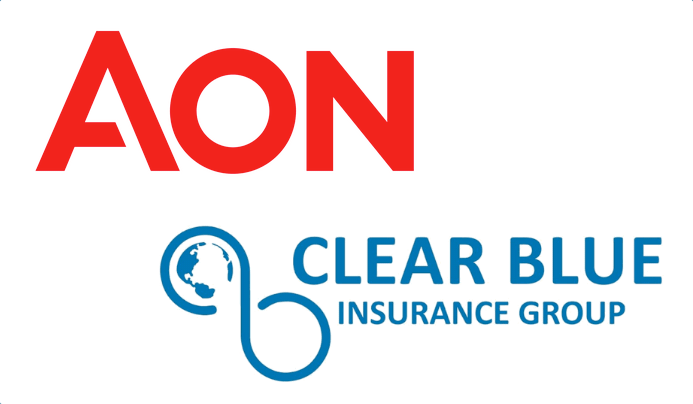I’ve heard the term “kill your darlings” fairly often among the writer community, but rarely among the entrepreneurship one, though I believe it can be just as fitting (or more) in business. The difference here is that writers perhaps romanticize their work and expect to fall in love with it, whereas entrepreneurs assume or pretend we can deploy logic when it comes to starting — and ending — business pursuits.
I hate to be the bearer of reality, but the truth is that it’s incredibly easy to accidentally allow our emotions to override the better business decisions we make. By emotions, I mean the fact that:
- We’ve poured weeks/months/years (or $XXX+) into a venture
- We’ve told all our friends/peers/family/the world about our venture
- We’ve come this far and have never been a quitter before…
Those are just a few of the emotional truths that conjure up a nonsensical lie. That lie: Perseverance is the only admirable option.
Here’s the problem with that assumption: It fails to take into account that persevering down the wrong path — or one revealing your misjudgments (and the market’s repulsion) — is far less admirable than being courageous enough to objectively reassess, pivot, and sometimes even kill your darlings altogether.
It took me shutting down a venture into which I’d poured 18 months and 6-figures of my life savings (the majority at the time) in order to objectively assess the state of the market, available opportunities, and how I could rebuild from ground zero, with next to zero dollars left to my name.
Killing that venture was scary, but the sunk cost fallacy could have played out even scarier. I’d take a combination of strategy and logic over perseverance, as risk-averse and “un-entrepreneurial” as that may sound.
When I say “kid”, I don’t mean a young person with limited business experience; I mean a legitimate minor too young for a driver’s license who had no business background whatsoever. This kid was actually one of the beta testers for one of my ventures, and thanks to his raw optimism and unshackled honesty, he made an unexpected suggestion for my company.
His suggestion was something along the lines of:
- Why don’t you change the structure of the service completely?
- Why don’t you market it to a whole different group?
- Why don’t you launch it next week?
My scarred, experienced, adult brain would have rebutted:
- Because we’ve planned this structure for 6 months and tested it with beta users…
- Because we assumed it would be most appealing to a certain subset of users…
- Because…that’s crazy! We can’t just scramble to restructure, remarket, and relaunch the whole thing by next week…
And we didn’t; it took two weeks. Nonetheless, it launched to ridiculously outsized and unexpected success (think a 200x ROI and exponential growth).
Had I listened to myself, my partner, or my marketing team, we never would have tried such a last-minute and drastic shake-up. However, this kid’s unwavering conviction — that was blissfully unaware of the obstacles inherent in such a dramatic change of plans — convinced me to give it a go.
Sometimes 6, 12, or 18+ months of planning can be instantly dwarfed by a few minutes, days, or in this case two weeks of making one right decision.
Since then, I’m an advocate for listening to every voice, no matter how unqualified or inexperienced. Sometimes the lack of prior experience (and preconceived notions) can derive the most shocking positive outcomes.
Typically, I’d argue that diversification is one of the best protections for anyone’s business and financial well-being. That said, sometimes you have to swing big when an investment or opportunity is rare, scarce, time-limited, and has significant outsized potential that can’t be replicated.
I did just this a few years ago with a strategic real estate purchase that would have been out of my — and most people’s — reach. When a rare opportunity and conflation of strategy and luck happened, I chose to assemble a small acquisition team and cash out 100% of one of my significant stock portfolios to go big on this once-in-a-lifetime investment with unparalleled terms.
Here’s why the “scary” decision to cash out entirely of an account that had been managed by professional wealth managers and provided a consistent return was worth the discomfort:
- The new asset opportunity alone would provide more than 20x the return on an annual basis (with very little added risk)
- I could make improvements and upgrades that would further increase the value and cash flow of the new investment (something I could never do with publicly traded stocks for companies I don’t own a significant chunk of)
- The new asset was an incredibly scarce, limited opportunity that’s nearly impossible to replicate
Lastly, if I’m fully transparent and honest, I believe in the inherent value of the new asset far more than the old stock account. It’s one of those special assets that rarely goes to zero (and comes with insurance to offset that low risk) — unlike so many other investment vehicles.
Point being, sometimes when you have enough conviction around a big move, plus a historic track record of proof points (and logical rationale) around an investment, it may be worth pulling the trigger, even if it seems unbalanced compared to the ideally diversified portfolio.
A couple years ago, I did something I’ve never done before. I built a business around a frivolous experiment that was 100% unlike any of my other prior ventures or professional experiences.
To be clear, I didn’t turn an experiment into a business; I approached a new “just for fun” venture as a learning opportunity, building it smartly, yet also leaning into the frivolous, fun, creative nature that made it so successful.
The biggest differences between this and my other ventures weren’t the industry or the audience (though they were different). The greatest differences came down to the fact that I approached this project with much less pressure, fear, and scarcity than I had my other ventures. Why? By the very nature of deeming it “a frivolous experiment”, I gave myself permission to have fun, test things out, pivot, take chances, and do all of that without the fear of missing certain milestones or financial goals.
Ironically, this frivolous little experiment ended up kicking some of my other ventures’ butts with respect to earnings, profit, and return on investment in terms of both time and money. As far as money goes, I put next to nothing into this one. As for time, I probably spent one to two days per week getting this venture off to the races, and by continuing with that minimal time investment, accumulated passive income and cost-free growth continued.
While I won’t share exactly what the venture is, I’ll hint that it is in the media space, so our product costs were effectively zero, and I was able to bundle technical and operational costs with my other ventures, incurring minimal bumps (if any).
Regardless, the takeaway here is that sometimes by giving yourself permission to go all in on a whimsical, experimental project, you just may seamlessly venture into your next big thing. Stress, pressure, and the fear of failure — and the demand for hitting aggressive milestones on an accelerated timeline — don’t guarantee entrepreneurial success. In fact, for some people, I’d argue they hinder it.
When business stops being fun, many stop showing up with their best set of decisions and contributions. I’ve learned the hard way that making yourself miserable as an entrepreneur is not the secret to success. You don’t get more points — or money — for misery, and you’re allowed to make business fun, while still creating massive revenue streams in notoriously competitive industries, just like I did.
As entrepreneurs, many of us find our identities in a certain type of business or industry. We might be the “SEO expert” or the “email king” or the “education queen”, etc. However, some entrepreneurs allow those labels and buckets of experience — and the perception of one’s reputation that comes with them — to mandate continued loyalty to a certain venture, expertise, or industry. While I think it’s great to hone deep domain expertise and perhaps own a vertical or industry, I believe it’s equally beneficial to give oneself permission to branch out, even if it feels like prioritizing a side interest (or investment) over your main squeeze.
I did this recently a few times with an industry of supreme interest, but one for which I’m not publicly known and for which I have significantly less of a track record. Nonetheless, it’s an industry in which my endeavors have outperformed many of my other ventures, and thanks to the fact that these investments are insulated with a capped downside and less seasonality, I’ve felt good about tripling down on my investment. That said, I’ve done so at the expense of my “primary” ventures, having to divert time, attention, and resources to these “side interests” to get time-sensitive deals done.
Did I feel guilty? Honestly, yes, at first I felt like I was cheating on the ventures for which I’m most publicly known. However, a quick and objective cost-benefit analysis would reveal that I was trading 5- and 6-figure decisions for 7-figure ones. In retrospect, that choice should never have been a hard one, but my blind loyalty to an industry or long-term venture almost made me prioritize the wrong thing.







































